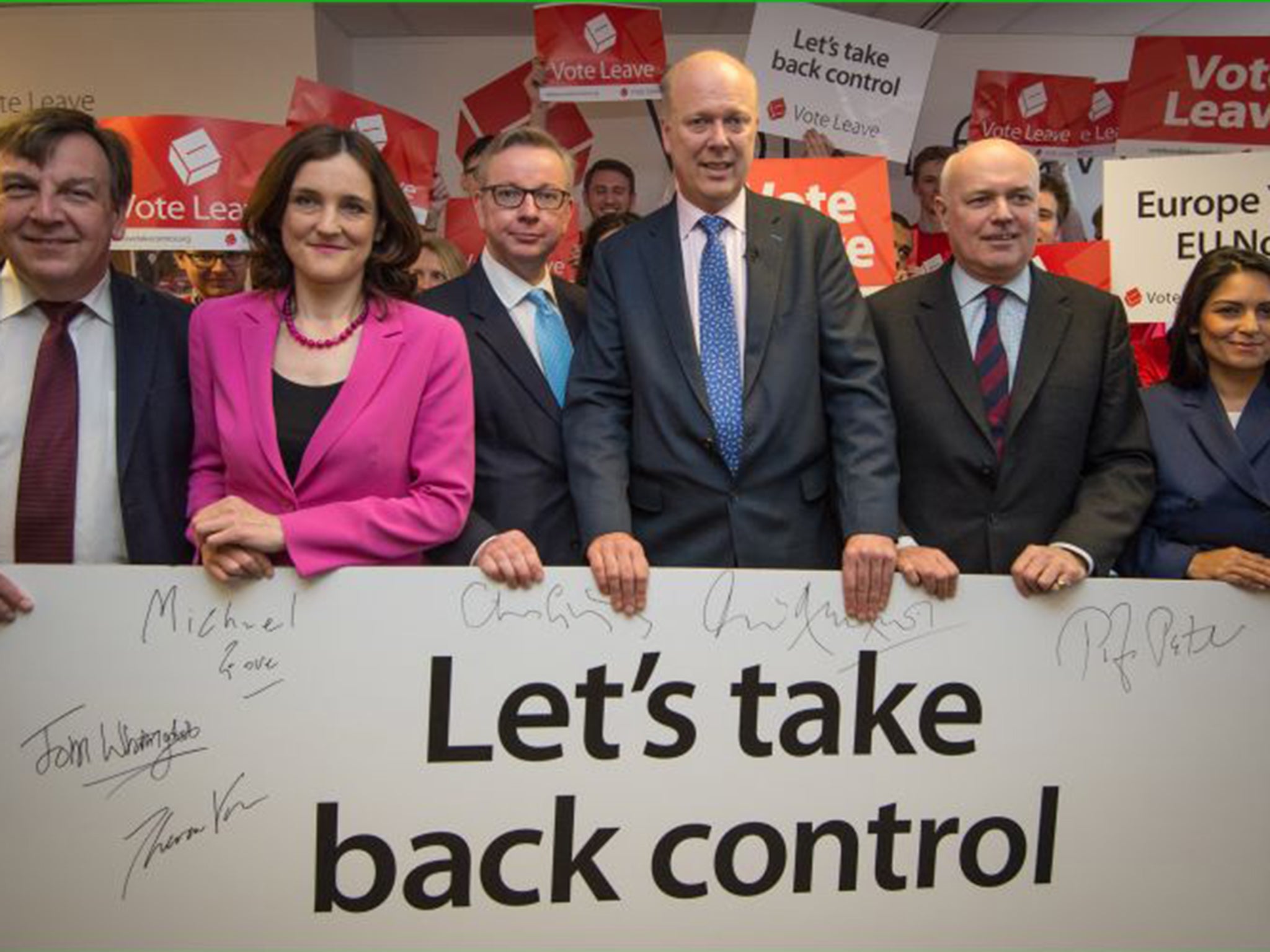If Vote Leave truly want a Brexit, they need a clear vision - not a smarmy rebuttal to government research
Project Outrage, as the Leave campaign is in danger of becoming, has its favourite lines: “So and so was wrong about the Euro and they’re wrong now” and “Why would the Germans/French not want to sell us cars/cheese anymore?”’

Two months out from the EU referendum and already the debate has descended into a pattern – one with which, you sense, the Government is entirely at ease.
‘Project Fear’, as the Leave campaigners would like to characterise the ‘In’ camp, will fire a salvo of statistics, projections, and economic warnings from Government officials, independent international bodies and world leaders.
Project Outrage, as the Leave campaign is in danger of becoming, will hit back with some combination of: “So and so was wrong about the Euro and they’re wrong now”; “Why would the Germans/French not want to sell us cars/cheese anymore?”’ or most recently, “It’s a conspiracy to keep us in the EU”.
Yesterday’s sound and fury about the Treasury’s projection that every household could, in the event of Brexit, stand to lose £4,300 by 2030, was a classic of the genre.
It is all becoming rather repetitive, and the Leave campaign, to the neutral onlooker, is coming off as rather lightweight.
Whatever the rights and wrongs of the Government’s use of the civil service to make its case, officials are not in the business of writing propaganda with no basis in reality. Nor does the International Monetary Fund or the Bank of England, though neither may have a 100 per cent success record on all its predictions, make economic warnings of the basis of mere supposition.
The easy way with which the Leave campaign brush off such concerns as “scare-mongering” might have been an effective opening gambit, but will resonate less and less with voters as the warnings stack up over the next two months.
If Boris Johnson, Liam Fox, Michael Gove et al want to be taken seriously as anything other than a protest movement, they need to quickly coalesce around a single vision of what the UK outside Europe would look like.
In doing so, they need to get real, and stop claiming that all will be rosy in the British garden post-Brexit. To take on one of their favourite rhetorical questions, they must acknowledge that there is a very good reason Germany would not want to sell us automobiles tariff-free, or why France may want to turn off the Burgundy tap.
To assume EU leaders would want to strike a good trade deal with Britain after Brexit is to fundamentally misunderstand the historic crossroads Europe stands at.
Wherever one looks – from Marine Le Pen’s Front National in France, Geert Wilders’ Freedom Party in Holland, to Viktor Orban’s right-wing Government in Hungary – there are anti-EU forces growing in influence.
If Britain votes to leave, fervour for greater autonomy will spread around the Union’s nation states like a contagion. With a migration crisis of epic proportions to contend with, the very future of the European Union will be in doubt. As one senior Whitehall official put it: “The leaders of the EU would feel they were in an existential battle to save what they have spent 60 years building.”
This is the backdrop against which the German Chancellor, the French President and Europe’s other senior leaders will come to the negotiating table with a post-Brexit UK. Government officials are already fearful that the siege mentality might “spill over” into negotiations. Expect a very hard-line and possibly a very raw deal – pour encourager les autres.
It is also simple fact that Britain leaving Europe would represent a major watershed in the continent’s history. Such moments cause inevitable uncertainty - and markets hate uncertainty. At the very least, this means a global economic shock that could hit growth rates in the UK.
While they are unlikely to ever accept the Treasury’s figures in their full inconvenient detail, if they want to be taken seriously, the Leave campaign need to soberly face up at least to this fact, and provide a clear explanation of how, in the long-run, this will be a price worth paying.
It wouldn’t hurt if they made some economic projections of their own, if only to show the public that they understand that it matters.
Of course, the Leave camp may be counting on the fact that, with two months to go, the mood music around the EU debate may shift from the hard realities of economics, to more intangible arguments about patriotism and national rebirth: a shift from arguments of the head, to arguments of the heart.
By releasing the full force of Her Majesty’s Treasury two months’ before time, the Remain camp could be said to have played its trump card too early. Even the helpful words of support Barack Obama is expected to deliver this week come a little too early to sway voters’ feelings come polling day.
So as spring turns to summer, the Remain campaign will need some more cards up its sleeve to ensure it does not lose the momentum. Expect more arguments about “the patriotic case for staying in”.
But as the Scottish referendum and the 2015 election showed, when presented with fine margins, it is usually the fear of economic instability and the unknown that dictates the way the undecideds vote.
If the Leave campaign cannot fill in the blanks for voters, they will struggle to get out of the starting block.
Join our commenting forum
Join thought-provoking conversations, follow other Independent readers and see their replies
Comments
Bookmark popover
Removed from bookmarks